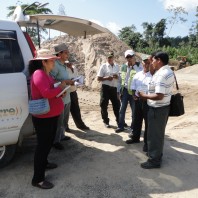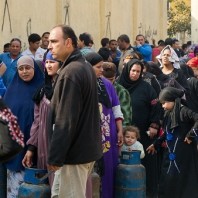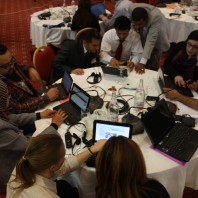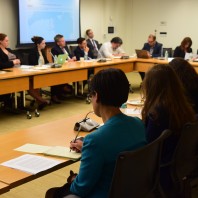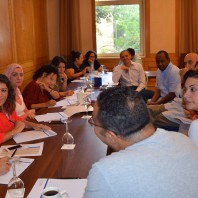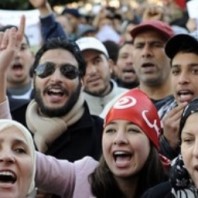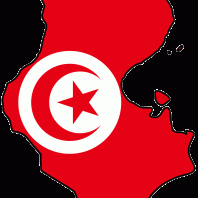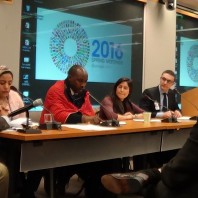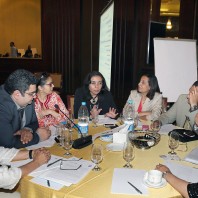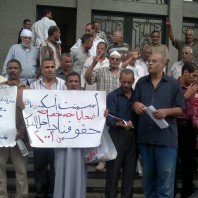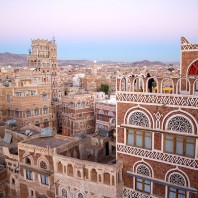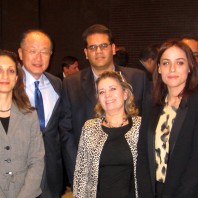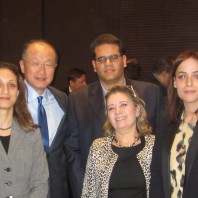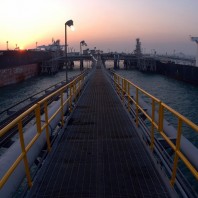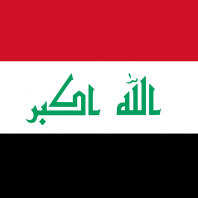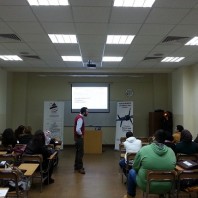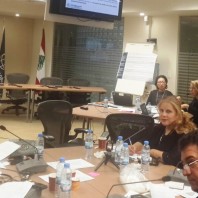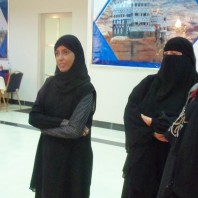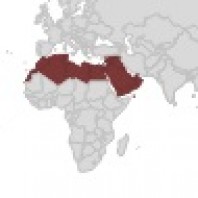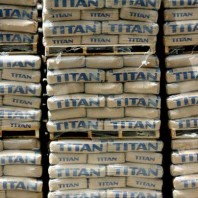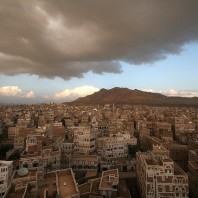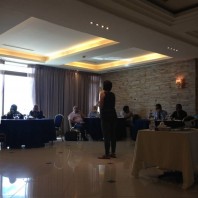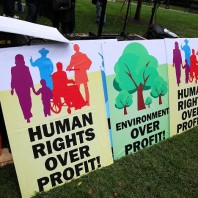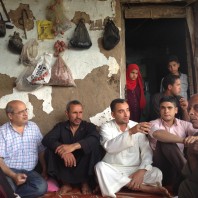BIC Rebuttal to the World Bank’s Response to BIC’s case studies on Development Policy Operations in Peru, Egypt, Mozambique, and Indonesia March 2017 In January 2017, the Bank Information Center (BIC) along with international and local partner organizations published a report and four case studies on seven World Bank policy lending investments in Peru, Egypt, …
The risks associated with development projects often fall disproportionately on the communities in close proximity to project implementation sites, communities that in some cases are the same groups that projects aim to benefit and serve. These local communities are uniquely placed to see and feel project risks and impacts on a day to day basis, and to …
When a community faces negative impacts due to a development project, systematic and consistent documentation of verifiable indicators of the impacts can support their efforts to hold development implementers accountable to their own standards, and can lend legitimacy to their advocacy for changes in the project. In the Wadi al-Qamr neighborhood in Western Alexandria, Egypt, …
Community surveys can be a useful tool for gauging a range of experiences and potential concerns across multiple individuals, and for identifying potential issues for further follow up when monitoring the implementation of development projects. Community surveys were used by civil society groups in Upper Egypt to identify community concerns and experiences engaging with project …
In a meeting held with civil society representatives from Arab countries during the October 2016 World Bank/IMF annual meetings, Hafez Ghanem, the World Bank’s Vice President for the Middle East and North Africa, announced progress in easing access to Arabic documents on the World Bank’s website. The Middle East and North Africa Department is the …
On Friday, October 7, 2016 civil society and World Bank representatives gathered to discuss the Tunisian experience of development and decentralization. In the aftermath of the revolution and the new constitution in Tunisia, the Government has made strong commitments to make their vision of a participatory decentralized democratic state a reality. Development agencies such as …
From September 23 to 25 2016, 33 individuals representing civil society organizations from Egypt, Tunisia, Yemen, Iraq, Lebanon, Morocco, and Jordan met in Beirut Lebanon in September 2016 to discuss how participants can build on the experiences of their colleagues in other MENA region countries, as well as strategies and modes of engagement with the …
In the aftermath of the revolution and the new constitution in Tunisia, the Government has made strong commitments to make their vision of a participatory decentralized democratic state a reality. Development agencies such as the World Bank have stepped up to support this transition by financing the Urban Development and Local Governance Program, a $300 …
Wadi Al Qamar near Alexandria, Egypt. Photo: © http://bit.ly/2aHaT3J In April 2015, the Compliance Advisor/Ombudsman – the International Finance Corporation (IFC)’s independent accountability mechanism – received a complaint from Egyptians living in Wadi al-Qamar, concerning the IFC-financed Titan cement plant and its incompatibility with IFC’s environmental and social requirements, including its violation of Egyptian national …
Ce message est également disponible en: arabe Ce message est également disponible en: anglais Le 17 mai 2016, le Groupe de la Banque mondiale a publié le Cadre de Partenariat Pays (CPP) de la Tunisie pour la période 2016-2020. Ceci a formellement conclu le processus d’élaboration du CPP qui a débuté en Janvier 2014. La version finale …
This post is also available in: French On May 17 2016, the World Bank Group released the Country Partnership Framework (CPF) for Tunisia for the 2016-2020 period. This formally concluded the CPF drafting process that started in January 2014. The final document highlights the critical role the WBG aspires to play in developing the private …
The World Bank has committed to 100% beneficiary feedback in its projects and aims through its corporate strategy to empower citizens to participate in the development process. At the same time, since 2012 over 60 countries have passed legislation restricting civil society’s ability to freely operate and many communities face intimidation or criminalization when raising …
In December 2015, the World Bank Board of Executive Directors endorsed a new Country Partnership Framework (CPF) for Egypt. The CPF is a collaborative strategy between the World Bank Group (WBG) and the client government which defines the development priorities on which the WBG will build and mobilize their support to Egypt for the period …
Image Credit: CNN.com The International Finance Corporation (IFC), the private sector arm of the World Bank Group, invested 80 million euros in the Titan Group subsidiary Alexandria Portland Cement Company (APCC) in 2010. The investment provided the IFC with a 15.2 percent equity stake in Alexandria Portland Cement Company, through Titan’s holding company Alexandria Development …
Without accessible and comprehensible information, stakeholders cannot meaningfully engage in development. Bank Information Center, Fundar-Center of Analysis and Research, Yemeni Observatory for Human Rights, and Egyptian Association for Collective Rights organized a session during the World Bank Spring Meetings Civil Society Policy Forum titled “Breaking Down Barriers to Accessing Development Information”. The panelists presented case …
Photo Credit: Getty Images In the awake of the popular uprisings that swept across the Middle East and North Africa in 2011, Yemen saw a period of intense insecurity and political violence. In trying to address the crisis, the Gulf Cooperation Council (GCC) brokered an initiative to help with the peaceful transition of power, demanding, …
This post is also available in: French In light of the political transition in Tunisia, the World Bank Group (WBG) is in the process of developing a new Country Partnership Framework (CPF) for the 2016-2020 grant period. This CPF will not only guide the WBG’s operations in Tunisia but it also aims to support the …
Ce message est également disponible en: arabe Ce message est également disponible en: anglais Compte tenu de la transition politique en Tunisie, le Groupe de la Banque mondiale (GBM) est en train d’élaborer un nouveau cadre de partenariat pays (CPP) pour la période de subvention allant de 2016 à 2020. Ce CPP non seulement guidera les opérations …
Ce message est également disponible en anglais et en arabe. À la fin de Mars 2016, le Président du Groupe de la Banque mondiale (GBM), Dr Jim Yong Kim, ainsi que le Secrétaire Général de l’ONU, ont rendu visite au Liban, en Irak, en Jordanie et en Tunisie. Le but du voyage était de réitérer …
This post is also available in: French. In late March 2016, the World Bank Group’s (WBG) President, Dr. Jim Yong Kim, along with the UN Secretary General, paid a visit to Lebanon, Iraq, Jordan and Tunisia. The trip’s purpose was to reiterate the commitment of multilateral institutions to stability in the MENA region. Tunisia was …
Since June 2014, the security expenditure associated with battling the Islamic State organization, also known as ISIS, and the stunning decline in oil prices to an average $35 in 2016 have combined to cause grave economic troubles for the Iraqi state, creating a budget deficit of $25 billion in 2016. Today, in order to …
Linked below is a list of projects that the World Bank Group is financing or proposing to finance in Iraq as of April 28, 2016. The projects are funded by either the International Bank for Reconstruction and Development (IBRD), the part of the World Bank Group that makes loans to the public sector in Middle …
On December 5, 2015, a group of Civil Society Organizations (CSOs) from different countries across the Middle East and North Africa (MENA) submitted a joint letter to World Bank Group officials (WBG or Bank) regarding the Bank’s MENA regional program implementation of its translation framework. Having the signing support of twenty-five CSOs from Yemen, Iraq, …
Image Source: Rightsobserver.org As the World Bank Group (WBG or the Bank) is currently reviewing its safeguards policies, several Civil Society Organizations (CSOs) began calling for the integration of human rights principles in the new policies, seeing human rights as an important aspect of development policies and countries programing. But integrating human rights principles (HRPs) …
Iraqi Civil Society Organizations (CSOs) are actively trying to hold their central and provincial institutions accountable. Like their local counterparts who continue to plan public protests against government corruption, some local CSOs are focusing more of their civic efforts on the development work of the World Bank (WBG or Bank) in Iraq. Five local CSOs from …
Beginning in 2011, much like other Arab Spring countries, Yemen had to face months of mass, oftentimes violent, protests that called for the toppling of Ali Abdallah Salah’s regime. In an attempt to stop the sliding of the country into further chaos, the Gulf Cooperation Council (GCC) brokered an initiative to establish a caretaker government …
Email Address First Name Last Name Preferred Language English Arabic
The World Bank office in Tunis held a session in June, 2015 to present and discuss its Systematic Country Diagnostic (SCD)[1] for Tunisia, following which CSOs and university professors submitted comments on the SCD and the Country Partnership Framework (CPF).
After almost seven years with the Bank Information Center, we are sad to have recently said goodbye to Nadia Daar, MENA Policy Manager and Yemen Program Coordinator who has started a new position with Oxfam International.
Based on a request by a number of Iraqi civil society organizations (CSOs), a meeting was held with the World Bank’s country manager in Baghdad on 9 July 2015. In a promising step, Bank officials have contacted the participants following that meeting to inform them of the Bank’s interest in engaging civil society organizations in Iraq in third party monitoring of World Bank projects in the country.
June 2015 Following a letter that multiple Tunisian CSOs sent to the World Bank office in Tunis with their asks regarding the Tunisian Systematic Country Diagnostic (SCD) and Country Partnership Framework (CPF) consultation process, the signatories of the letter – along with several other CSOs and academics – were invited to participate in a discussion …
Civil society organizations in Egypt have submitted a parallel Country Partnership Framework (CPF) to the World Bank office in Cairo detailing what they envision should be the strategic priorities for World Bank-financed development projects in Egypt. In addition, the groups also submitted specific comments and proposed amendments to the current CPF draft.
The Bank has commenced with the process of Country Partnership Frameworks in a number of MENA countries. Each country has taken a different path than originally expected.
First and foremost, the organizations are asking that clear information be posted on the Bank’s website regarding the CPF timeline. As it stands, there is no information about the CPF process in Tunisia either on the Bank’s country webpage or on the Bank’s consultation hub.
Egyptian rights groups, community members, and laborers impacted by a hazardous cement plant financed by the International Finance Corporation (IFC) filed a complaint on April 8, 2015 with the body’s independent grievance mechanism. The grievance mechanism, called the Compliance Advisor Ombudsman, or CAO, has now deemed the complaint eligible to move through the grievance process. …
The World Bank has suspended operations in Yemen, appointed a new country director, and is preparing the preliminary groundwork for a Systematic Country Diagnostic (SCD).
Egypt and Morocco are the two largest recipients of World Bank lending in the Middle East and North Africa region and as such it was appropriate and important that the Bank held consultations in those two countries as part of a series of global consultations around the Bank’s draft of its proposed Environmental and Social …
Despite the political situation in Iraq, civil society groups seem adamant on continuing their legitimate fight for sound accountability mechanisms in the country. This is especially true with the run up to the implementation of the 2008 law on decentralization that will transfer the responsibility of services delivery to the provinces, and the resulting need …
Yemeni Parliamentarians Against Corruption (YPAC) launched its new project funded by OXFAM Novib through which it will establish a parliamentary group to monitor grants and loans made to the Yemeni government by international financial institutions and other donors. A three day workshop to launch the project was held in Amman, Jordan from the 8th to …
September 2014 18 individuals representing civil society organizations from Egypt, Tunisia and Yemen met in Amman, Jordan in September 2014 to discuss where each country is currently in the Country Partnership Framework (CPF) process with the World Bank and how participants can build on the experience of their colleagues in other MENA region countries, as …
September 2014 A group of Egyptian Civil Society Organizations (CSO)s participated in an event on the Systematic Country Diagnostic (SCD) held at the World Bank office in Cairo in September 2014. An SCD is currently being prepared for Egypt as part of the World Bank’s process of developing a new Country Partnership Framework (CPF) to …
As part of its new corporate strategy, the World Bank has put together a new strategy for “Citizen Engagement” that aims to engage citizens throughout the development process and across Bank operations. Civic engagement is defined by the Bank as being a set of interrelated conditions that impact on the capacity of citizens and civil society organizations …
CSOs from the Middle East and North Africa participated in several statements, workshops, demonstrations and consultations on the World Bank draft Environmental and Social Safeguards.
On July 27, 2014, ahead of the scheduled World Bank Board meeting to discuss the Bank’s newly proposed draft Environmental and Social Safeguards Framework, Egyptian civil society organizations sent an urgent letter to their representative on the Board of Directors, Dr. Merza Hasan, urging him to recommend that some critical changes be made to the draft. The letter …
A group of Egyptian civil society participants in the World Bank’s first round of consultations on its development of a new Country Partnership Framework (CPF) for Egypt have released a statement with their observations and recommendations on the consultative process thus far. Since the Bank launched its process of developing the first full-fledged country strategy …
Below are the projects the World Bank Group is financing or proposing to finance in Tunisia as of May 27 2014 (compiled by the Bank Information Center): World Bank active projects in Tunisia World Bank proposed projects in Tunisia International Finance Corporation (IFC) projects in Tunisia
Civil society organizations (CSOs) in Egypt, Yemen, and Tunisia are closely following the World Bank Group’s (Bank) development in their countries of new frameworks that will guide the Bank’s public and private sector operations for the next 4-6 years. In all three countries, the Bank will be launching the process for developing Country Partnership Frameworks …
As part of its new corporate strategy, the World Bank is putting together a new strategy titled “Citizen Engagement” that aims to engage citizens throughout the development process and across Bank operations. However, the strategy is being designed in a way that contradicts the very principle it is aiming to promote: consultations have been planned …
Although the process for developing a Country Partnership Strategy/Framework (CPS/CPF) in Yemen has been postponed until 2015, Yemeni civil society organizations (CSOs) have already taken proactive steps to tell the World Bank how they would like to be consulted once the Bank begins developing its country approach. The proposal submitted to the Yemeni World Bank office …
The World Bank Group (“WBG” or “the Bank”) announced in 2014 that it is changing its Country Engagement approach, in line with the 2013 WBG Corporate Strategy that aims to streamline operations across the institution (public and private sector) and focus all operations moving forward on two goals of reducing absolute poverty and boosting shared …


